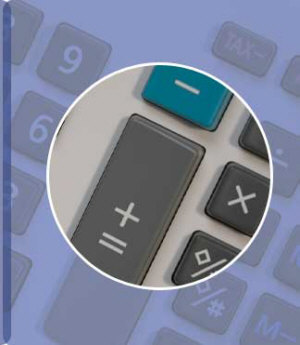The Truth About Bi-Weekly Mortgage Payments
Do They Really Save Money?
Here is something that biweekly mortgage salespeople don't want you to know
January 17, 2008
By: Scott Janke - Real Estate Mortgages

Bi-Weelky Mortgage?
Does It Really Save Money For The Homeowner?
Biweekly mortgages have been represented as a pretty good way to save money and pay off your mortgage earlier. Companies even claim that it won't cost you any more than you're paying now. What do you think a true biweekly mortgage saves you?

The savings from paying more frequently? It doesn't save that much at all. Here is something these biweekly mortgage salespeople don't want you to know.
A $100,000 mortgage at 8% for 30 years has a monthly payment of $733.76. That's 360 payments of $733.76 or a total of $264,155 at the end of 30 years. A true biweekly mortgage with 780 payments (26 payments per year) has a payment of $338.52, which totals $264,041 after 30 years of payments.
Check out how much you saved by paying biweekly-that's right, only 114 bucks ($264,155-$264,041)!
If paying more frequently isn't what creates the savings, how can these companies claim to save you big money? They use the "biweekly" word to imply that increased frequency of payment can save money, when the real way they show the savings is by making you increase your payments.
They do a little math trick to force you to pay more, and that trick is to divide your mortgage in half and make that result the biweekly payment. The problem here is that 26 half-payments equal 13 whole-payments or an extra month's payment each year. Obviously, if you pay more money, you reduce your mortgage faster.
Let's go back to my original example. Notice that half the monthly payment of $733.76 is $366.88. If you pay $366.88 every two weeks, it only takes around 23 years to repay the $100,000 and costs a total of $217,853. So it seems like you save money by paying more frequently, but in reality it's the extra money that reduces the mortgage faster.
This is a forced-discipline mortgage repayment plan. Not only requiring you to increase your payment, but how frequently you make those payments. Under the biweekly mortgage plan, you make 26 payments per year instead of 12. Now you're writing 14 more checks each year. Isn't that fun, yeah, just what you always wanted, 14 more bills to pay each year!
Most biweekly mortgage companies actually want to charge you for this entire setup! That's right, most companies charge an up-front fee and a monthly service fee.
The monthly service fee is so they can debit your checking account every two weeks and you don't have to write the checks. That sounds to me to be an advantage for them! They get your money guaranteed since they can take it from your account at will.
Recently, a mortgage company attempted to sell an in-law on refinancing his current mortgage into one of these biweekly loans. Unbelievably, their interest rate was higher than his current mortgage! But, the salesman argued, "interest rates don't matter - look at how much you save."
Let's look at the numbers. Refer again to my first example of $100,000 for 30 years at 8% with a monthly payment of $733.76 that costs a total of $264,155 to repay. The salesman said "even though the biweekly payment is $366.88 (half the monthly payment), you can afford to add a little more "how about another $50?" That raises your biweekly payment to $416.88."
His company's rate is 9% and with payments of $416.88 ($366.88+$50) the total cost to repay the $100,000 is $214,026. The savings look like $50,128 (the difference between $264,155 and $214,026). Then there's the $500 up-front fee and the $3 per-payment fee that they don't include in the total cost of the loan.
When you include all the fees of the biweekly plan, it comes to $216,068. He always has the option to pay $903.24 monthly toward his current mortgage. That $903.24 monthly payment is the equivalent of paying $416.88 biweekly. At $903.24 he can pay his current mortgage off for a total cost of $182,093. And that's with no special plan, fees, extra payments or, in other words, no smoke and mirrors.
Look at that figure ($182,093). They tried to trick him into a complex financial scheme that would cost $216,068! That plan would have him paying nearly an extra $34,000 compared to doing it on his own.
There are also considerations, such as other debts. If you have credit-card debts with interest rates greater than your mortgage rate, it makes sense to pay back the credit cards first. Similarly, if you have investments earning more than the interest rate of your mortgage, it's best to continue investing. Also, because of inflation, your future payments toward your mortgage are less when compared to current dollars.
If you want to pay your mortgage off early and save money on interest, then add some extra money to your monthly payment. This way, if for some reason you have trouble making the new payment, you always have the option to make the old lower payment, plus you retain more control over your money.
Or if you really want to be forced to pay your mortgage off early, then ask you current bank if they can set up a direct payment plan that includes your extra principal payment. As long as they can do this for free, then give it a try.
Scott Janke
The Mortgage Guy
Or Contact Scott Janke at Executive Mortgage
(989) 450-6900